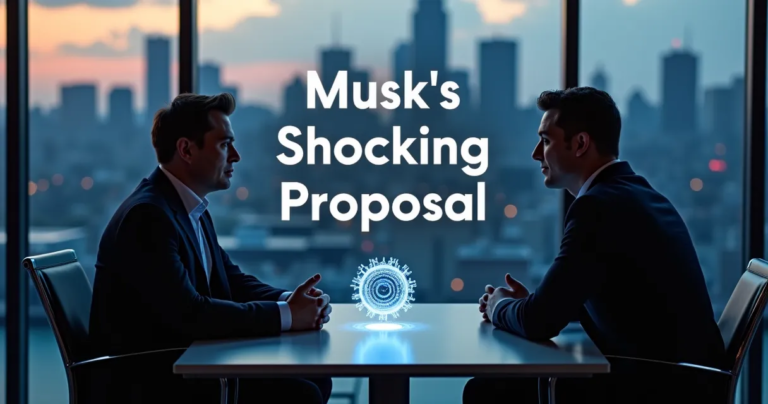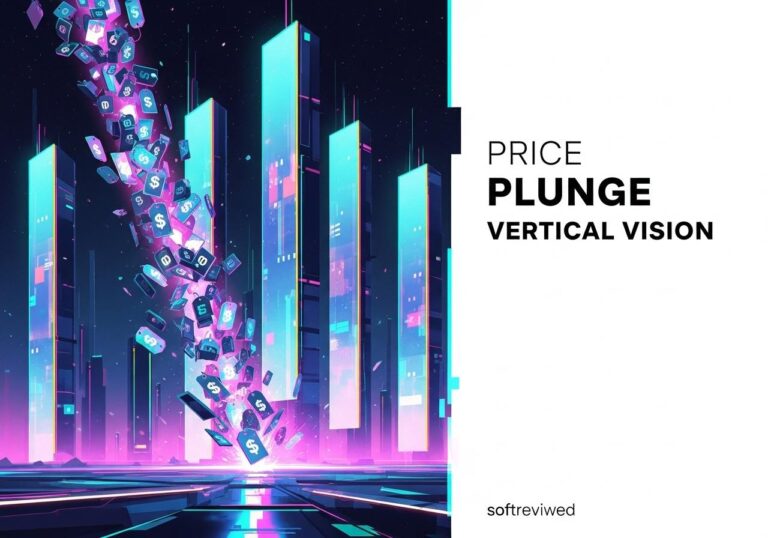OpenAI Acquisition Bid Drama
The latest developments in the ongoing saga between Elon Musk and OpenAI
💰 Massive Acquisition Bid
Elon Musk leads a consortium with a staggering $97.4 billion offer to acquire OpenAI, marking one of the largest tech acquisition attempts.
😄 Sam Altman’s Counter
In a surprising twist, Sam Altman responds by jokingly offering to buy Twitter for $9.74 billion, adding humor to the situation.
🎯 Musk’s Mission
Musk’s primary goal is to return OpenAI to its nonprofit roots, expressing concern over its current for-profit direction.
📜 Historical Context
As a co-founder in 2015, Musk’s departure from OpenAI stemmed from disagreements over the company’s strategic direction.
📈 Valuation Insights
OpenAI currently values at $157 billion, with potential to reach $300 billion in upcoming funding rounds.
Musk's $97 Billion OpenAI Bid: A Power Play or a Passion Project?
The artificial intelligence world is buzzing after Elon Musk, the tech mogul behind Tesla and xAI, made a bold move to acquire the nonprofit entity that controls OpenAI for a staggering $97.4 billion. This audacious bid, aimed at reclaiming the AI company he co-founded, sparked a quick and witty response from OpenAI's CEO, Sam Altman, injecting more fuel into the already fiery rivalry between the two tech giants. But what's behind this dramatic offer? Is it a genuine attempt to steer OpenAI back towards its original mission of open-source AI development, or is it a power play in the ever-competitive AI landscape? 🤔 This article will delve into the details of this high-stakes tech battle, exploring the motivations, the key players, and what this could mean for the future of AI.
The Genesis of the OpenAI Conflict: From Co-Founders to Competitors
In 2015, Elon Musk and Sam Altman, alongside other prominent figures in the tech world, established OpenAI as a non-profit research company focused on developing safe and beneficial AI. The initial aim was to ensure that AI technology would serve humanity rather than be controlled by corporate greed or self-interest. However, this collaborative vision started to splinter over time. ➡️ By 2018, disagreements regarding the direction of OpenAI led to Musk's departure from the board. This divergence further widened with OpenAI's shift towards a for-profit model, prompting Musk to voice strong disapproval and eventually establish his own AI venture, xAI, in 2023, essentially creating a direct competitor to his former company.
Here's a quick look at key events:
- 📌 2015: OpenAI founded as a non-profit.
- ➡️ 2018: Musk leaves OpenAI board due to disagreements.
- 🚀 2023: Musk establishes xAI.
Why Musk Wants Back In: A Quest for Open-Source and Safety?
Musk's offer to acquire OpenAI is not just about business; it's rooted in his deeply held beliefs about the future of AI. He argues that OpenAI has strayed from its original open-source and safety-focused principles, prioritizing profits over the public good. Musk’s lawyer, Marc Toberoff, stated that, "It's time for OpenAI to return to the open-source, safety-focused force for good it once was. We will make sure that happens.” Musk envisions AI as a tool that should be accessible to everyone, developed transparently, and with safety mechanisms baked in from the start. His push for an open-source model contrasts with OpenAI's current direction, which increasingly involves proprietary technologies and commercial partnerships.
Key points of Musk's vision:
- ✅ Open Source: AI should be transparent and accessible.
- 💡 Safety First: AI development should prioritize safety.
- 🌍 Public Good: AI should benefit humanity.
Altman's Audacious Rejection: A Twitter-Sized Counter-Offer

Instead of engaging in a protracted negotiation, OpenAI CEO Sam Altman responded to Musk's offer with a sharp and humorous jab on X (formerly known as Twitter). Altman tweeted, “No thank you but we will buy Twitter for $9.74 billion if you want.” This response is a clear dig at Musk's acquisition of Twitter for $44 billion in 2022, a move that has since seen the platform's valuation drop significantly. It was a brilliant and cheeky counter offer to Musk. Altman's witty retort underscores the deep-seated tension and personal rivalry that now characterizes his relationship with Musk. This public exchange indicates that there's more than just corporate strategy involved in the current conflict. ✅ The battle is now personal.
Here’s a side-by-side comparison of the offers:
| Musk's Offer to OpenAI | Altman's Offer to Musk | |
|---|---|---|
| Offer: | Acquire OpenAI for $97.4 Billion | Acquire Twitter for $9.74 Billion |
| Context: | Reclaim original vision | Humorous counter-offer |
| Impact: | Highlights fundamental differences | Underlines personal rivalry |
The Billion-Dollar Battleground: OpenAI's Transformation and Musk's Crusade
Musk's bid to take over OpenAI is complicated by the company's ongoing transformation from a non-profit to a for-profit entity. This move requires the for-profit arm of OpenAI to acquire the assets of the controlling nonprofit at a fair market value. Musk's $97.4 billion offer, while seemingly audacious, might also be a strategic attempt to inflate the value of the nonprofit's assets, potentially making the conversion more expensive or challenging for Altman. ⛔️ It's a complex financial chess game played out in the public sphere, adding another layer to the drama. Furthermore, Musk's lawsuit against OpenAI further underscores his dedication to his original vision for the company and his commitment to hold them to that.
Here's a breakdown:
- 💰 $97.4 Billion Offer: May be a strategy to affect OpenAI's transition.
- ⚖️ Lawsuit: Musk doubles down on his original vision for OpenAI.
- 📈 Valuation: A complex financial play in the public eye.
What Was Sam Altman’s Reaction to Elon Musk’s Offer for OpenAI in Light of Google’s AI Privacy Changes?
Sam Altman’s reaction to Elon Musk’s offer for OpenAI highlighted concerns surrounding governance and ethical implications. With tensions rising over competition and innovation, discussions were also framed by Google’s evolving stance on ai surveillance, pushing leaders in the AI sector to consider privacy implications in their strategic decisions.
Expert Takes: Ideological Differences Driving the AI Clash
The conflict between Musk and Altman is not just a business dispute; it also reflects a fundamental divergence in their views about AI development. As stated by Karan Karayi, Editor-in-Chief at Marksmen Daily: "Their rivalry is fueled by ideological differences: Musk envisions AI as an open-source, safety-first initiative, while Altman sees commercial success as integral to AI's long-term sustainability." Some experts believe Musk's focus on open-source is crucial for avoiding the monopolization of AI by a few powerful corporations. Other experts, like Altman, believe that commercial success is necessary for the long term development of AI technology. This division highlights the ongoing debate within the AI community about the balance between ethical considerations, safety, accessibility, and commercial viability.
Key Ideological Differences:
- Musk: 📌 Open-Source & Safety-First
- Altman: ✅ Commercial Success & Innovation
- Debate: ⚖️ Ethical Considerations vs. Development Speed
Beyond the Headlines: What Does This Mean for the Future of AI?
The Musk-Altman feud raises significant questions about the future of AI governance and development. Should AI remain open and accessible, or should it be developed by for-profit companies? Should safety be the primary consideration, or should innovation and progress be prioritized? These are questions that will shape the course of AI development in the coming years. The back-and-forth between these two leaders emphasizes the real tensions in the AI field, as different groups pursue different development models. The outcome of the current conflict between Musk and Altman could potentially have a wide-ranging impact on the evolution of AI. 💡
Key Takeaways:
- 🤔 Governance: How should AI be controlled?
- 🚀 Development: Open vs. Proprietary models?
- 🌍 Impact: How will this shape AI's future?
A Tech Titan Tussle: Navigating the Future of AI Development
The recent events surrounding Elon Musk's attempt to acquire OpenAI and Sam Altman's counteroffer is a clear indicator of the increasing importance of AI and the battles for its direction. This public feud underscores the fundamental differences in vision between Musk and Altman. The conflict highlights the tension between open access and proprietary development, and between profit-driven innovation and the public good. As we navigate the complex world of AI development, it's important to consider these different perspectives and the implications of different models of AI development. The future of AI is still being written, and the ongoing saga between Musk and Altman is likely to be a key chapter in that narrative.
For more information about OpenAI, visit their official website. OpenAI
OpenAI: Key Financial Milestones & Relationships
Visualization of key financial data points related to OpenAI, showing investments and valuations over time.







